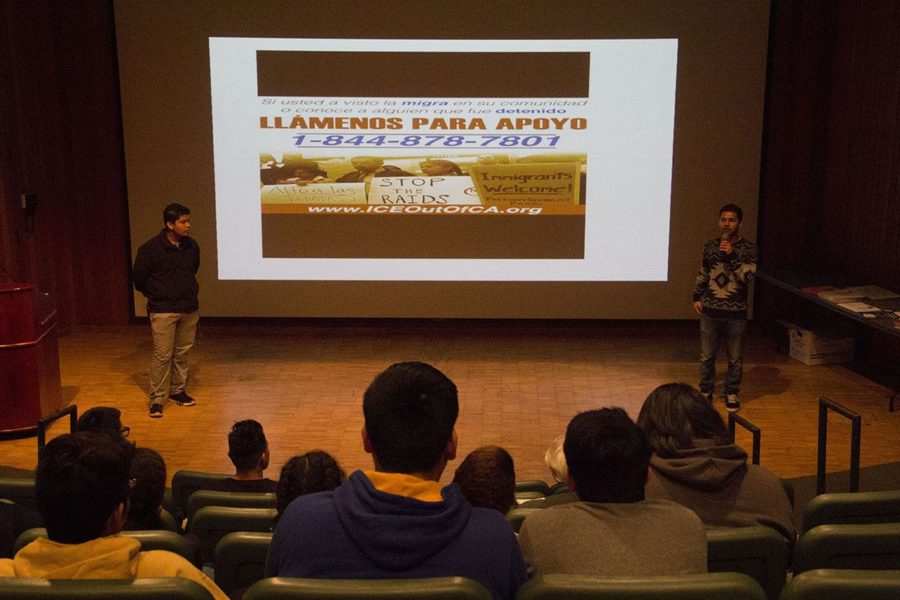For undocumented immigrants it is crucial to understand basic human rights, yet many are unaware of what is guaranteed by law.
Representatives of the Santa Rosa Junior College Undocumented Student Union, Bismark Torrez and Hector Jimenez-Carreno, held a lecture titled “Know your Immigration Rights” Jan. 30 in Newman Auditorium.
The atmosphere during the lecture was of concern not only for the people these issues directly affect, but for anyone looking to gain information to share.
An intimate group gathered to learn what Immigration and Customs Enforcement can and cannot do.
“Deport one and you destroy one family; deport most of us and our whole community is gone,” said Torrez, co-chair of Undocumented Student Union.
Torrez and Jimenez-Carreno said the lecture emphasized the importance of knowing how to prepare before, during and after being detained.
“It is very important to be having this conversation with families,” Torrez said. “It doesn’t matter how young or how old the person is, the reality is that no one is really completely safe when dealing with immigration. They are sneaky, they will lie to you and they are completely allowed to do that.”
Both Torrez and Jimenez-Carreno shared practical advice for undocumented immigrants.
If ICE shows up in your life, never incriminate yourself, even if you are undocumented, Torrez said. Once detained you have the right to remain silent, but you have to say it out loud.
The only question ICE can ask that you have to answer is your immigration status. “It’s important to remember once you are detained not to sign anything. Remind them you will not sign anything without speaking with your lawyer,” Jimenez-Carreno said.
If ICE shows up at your door, you do not have to open it. Have the officers slip the warrant under the door and always make sure it has your name on it and has been signed by a judge, Torrez said.
“Step outside very calmly, peacefully, and immediately shut the door behind, so nobody else is harmed,” Jimenez-Carreno said.
It is important to have a family plan, practice it, and start saving money for situations such as these, according to Jimenez-Carreno.
It is always important to build up as much credit for your case as possible. Don’t be afraid to ask for badge numbers or take photos and videos to help with your case, Jimenez-Carreno said.
Just because it wasn’t your family this time does not mean you shouldn’t take action, both Torrez and Jimenez-Carreno said.
“Access to information is key; a lot of my students have really busy lives – they work, they have families, they go to school, and they can’t necessarily come to things like this, so I like to get information I can bring back to them,” said English as a second language instructor Ellen Licht.
Roseland University Prep student Giselle Gonzalez said, “I think that it’s important that people know their rights and share it because you never know what may happen, and you need to be prepared at all times and you need to spread the word so others are ready and prepared as well.”
Report raids as soon as possible so they can be investigated by calling 1-844-878-7801.


